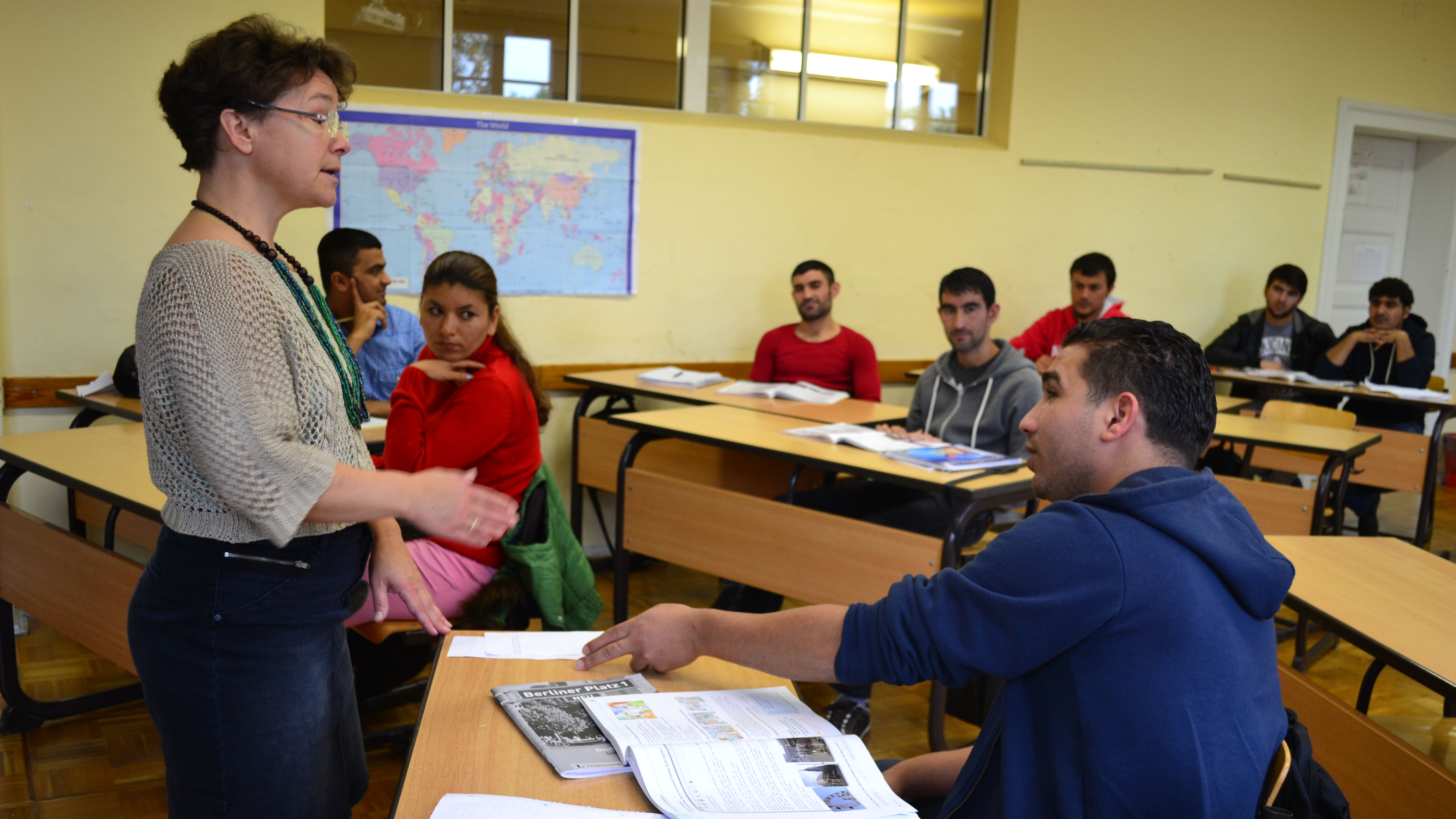
Strictly speaking, we only have two tenses: The present and the past. We do, however, define a few ‘semi-tenses’ by an interaction of tense (present or past), aspect (momentary or ongoing), and mood (is it a factual or a hypothetical statement?).
This gives us a list of eight basic ‘tenses’.
| 1. present | ik werk | I work |
| 2. simple past | ik werkte | I worked |
| 3. perfect | ik heb gewerkt | I have worked |
| 4. pluperfect | ik had gewerkt | I had worked |
| 5. future | ik zal werken | I will work |
| 6. conditional | ik zou werken | I would work |
| 7. future perfect | ik zal hebben gewerkt | I will have worked |
| 8. conditional perfect | ik zou hebben gewerkt | I would have worked |
For each tense, you will have to learn two things: 1. Its conjugation (I work, he works, etc.) 2. Its application: When do we use the tense?
Another common ‘tense’ -not mentioned here- is the continuous (or ‘progressive’): ik ben aan het lopen (I am walking). This will be discussed in the next chapter, under aan het continuous and tecontinuous.
The personal pronouns are:
| 1st singular | I | ik |
| 2nd singular | you | je/u |
| 3rd singular | he/she/it | hij/ze/het |
| 1st plural | we | we |
| 2nd plural | you | jullie |
| 3rd plural | they | ze |
As in English, in Dutch we have regular and irregular verbs.
Regular verbs all follow the same conjugation. To conjugate a regular verb, we need to know the stem. Therefore, before we move on to the actual conjugation of a verb, we need to know how to derive the stem from an infinitive.
المعنى الدقيق للكلمة، لدينا فقط اثنين من الأزمنة: الحاضر والماضي. ومع ذلك، فإننا نحدد بعض “شبه المتوترة” من خلال التفاعل بين التوتر (الحالي أو الماضي)، الجانب (لحظة أو مستمرة)، والمزاج (هو بيان وقائعي أو افتراضية؟).
هذا يعطينا قائمة من ثمانية “يتوتر” الأساسية.
| 1 – الحاضر | إك ويرك | أعمل |
| 2. الماضي بسيط | إك ويركت | أنا عملت |
| 3. الكمال | إك هب جيويركت | لقد عملت |
| 4. بلوبرفيكت | إك كان جيويركت | لقد عملت |
| 5. المستقبل | إك زال ويركين | سأعمل |
| 6 – مشروطة | إك زو ويركين | وأود أن العمل |
| 7. الكمال في المستقبل | إك زال هيبن جيويركت | لقد عملت |
| 8. الكمال الشرطي | إك زو هبن جيويركت | كنت قد عملت |
لكل توتر، سيكون لديك لمعرفة أمرين: 1. الاقتران (أعمل، يعمل، الخ) 2. تطبيقه: متى نستخدم التوتر؟
آخر “متوتر” مشترك – لم يذكر هنا – هو مستمر (أو “تقدمي”): إك بن آن هيت لوبين (أنا أمشي). وسوف تناقش هذه في الفصل التالي، تحت هيت المستمر و تي المستمر .
و الضمائر الشخصية هي:

التعليقات